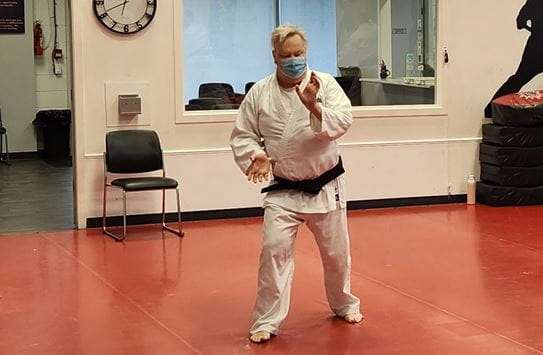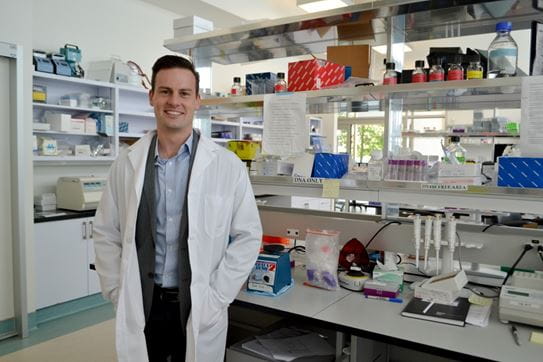Finding the right prostate cancer treatments for Don was crucial for keeping the 76-year-old karate instructor alive and active —13 years after his diagnosis. Fortunately, CCS-funded research helped his oncologist choose an effective treatment for the British Columbia resident and keep track of its progress.
“Thanks to the new treatment, I’m doing well,” Don says. “I’m able to train every day at home and do a Zoom class for martial artists on Saturday or at the gym on Sunday.”
But there was a time when thriving and remaining active didn't seem possible for Don. After doctors told him his prostate cancer had metastasized and surgery was not an option, they tried radiation, hormone therapy and chemotherapy, all with varying results. His cancer kept coming back.
Things started to improve when Don enrolled in a CCS-funded clinical trial co-led by Dr Alexander Wyatt. The trial aimed to assess a new test that can help doctors choose the right treatment for people with prostate cancer, all with just a sample of blood.
Based on the results of the test, a new immunotherapy treatment course was prescribed for Don. The treatment helped lower his prostate-specific antigen (PSA) levels – a good indication of a positive treatment response – more than with any other therapy. “The immunotherapy I received really worked well in bringing my PSA level down,” he says. “With chemo, it only went down a bit, but then it went back up. After the immunotherapy, it was undetectable for quite a long time. And it’s still down.”

The science behind Dr Wyatt's clinical trial
Deciding which treatments to give people with metastatic prostate cancer can be challenging because it is difficult to predict how aggressive the disease will be. With support from CCS, Dr Wyatt at the University of British Columbia is co-leading a team to develop and assess an innovative test that detects small fragments of genetic material from tumours in the bloodstream.
One of Dr Wyatt’s studies, which involved nearly 500 people with prostate cancer, found that their test outperformed other blood or imaging tests in estimating how well a person would respond to their next therapy and how quickly their cancer would progress. The results were recently published in the Nature Communications journal.
“Our findings show that this test is better at estimating response to treatment for patients with metastatic prostate cancer than any other test currently used in routine practice,” Dr Wyatt says. “It can also help doctors manage the disease more effectively.”
Blood tests are already performed regularly throughout a person’s care, so collecting a bit of extra blood at the same time for this new test is practical and straightforward.
“Because this testing is relatively new, it is mostly only performed in big academic hospitals,” Dr Wyatt says. “But it’s starting to be more widely adopted by the broader clinical community, for example, in rural areas.”
The research team is currently conducting 2 CCS-supported clinical trials to generate more evidence to determine how precise this test can be and how it can best be used to help people with cancer.
“We expect that results from both trials will demonstrate new ways in which these tests can help physicians decide which treatments they should give to their patients,” Dr Wyatt says.
Don is convinced that he is alive and active today thanks to research programs like Dr Wyatt’s.
“We need more research funding so Dr Wyatt’s team and others can continue building on this research,” he says. “It’s very important for many people to keep this progress going.”

